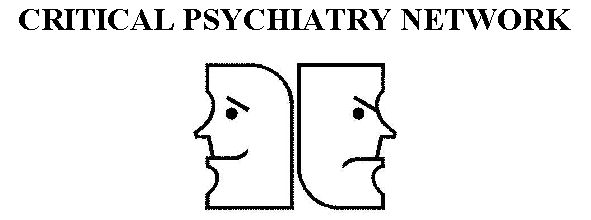

Reprinted with permission from Openmind 92 (July/August 1998) © 1998 Mind (National Association for Mental Health)
POST-PSYCHIATRY
Opening a closed book
Pat Bracken and Phil Thomas
The 'buzz' word in medical education these days is continuous professional development (CPD). In 1991, the Royal College of Psychiatrists introduced a CPD policy in response to increasing expectations that professional bodies have a responsibility to ensure that practitioners are kept informed of the latest developments. Psychiatrists are now encouraged to register for CPD, and whilst registration is not yet mandatory, it will almost certainly become so. Conference organisers seek approval for CPD accreditation, which means that psychiatrists who attend can earn 'points' towards their annual CPD requirement. CPD, therefore, is the system that has been introduced to ensure that doctors' knowledge is kept up to date. The question here concerns what it is that psychiatrists are expected to keep up to date with. To gain some idea of this, CPD has to be viewed in the context of other developments in medical education, especially the concept of evidence-based medicine.
A central feature of evidence-based medicine is the importance it attaches to the scientific study of treatment interventions obtained from randomised controlled trials. Experiments such as these have been widely used to compare the efficacy of drug treatments, and are now widely applied to psychological therapies. In evidence-based medicine, information from large numbers of such studies is pooled, and the results analysed (meta-analysis) to yield what is then usually regarded as the definitive evidence about the best type of treatment for a particular condition. The emphasis is on scientific methodologies and measurement of outcomes in terms defined by clinicians. Such an approach generates a particular type of knowledge, which may be useful for comparing the value of different types of treatment for conditions such as heart failure or breast cancer. The problem is that therapeutic encounters are complex phenomena, and, as Greenhalgh has observed, simply measuring that which readily lends itself to measurement, grossly oversimplifies the extremely complex nature of doctor-patient encounters. This is particularly relevant to psychiatry, where the nature of mental illness, and thus the appropriateness of medical interventions, is contested.
In this sense, evidence-based medicine is an extremely one-sided affair. The profession decides what is admissible as evidence (randomised controlled trials), and no attempt is made to consider patients' perspectives. Most patients, and for that matter most doctors, would acknowledge that the effectiveness of a therapeutic intervention is not simply a function of its scientific efficacy, and that a range of patient-related factors must also be taken into account. For example, what sort of treatments are acceptable to patients? Do patients actually want treatment for the condition? Are patients fully informed about the risks and benefits of different treatments? Do doctors act on the basis of the preferences expressed by patients? These, and other questions, are just as important as the rigorous scientific evidence demanded by evidence-based medicine, but they require a different approach if they are to be answered. In particular, they require that doctors pay more attention to the patient's view of treatment, and that these views are somehow incorporated into studies of the effectiveness of therapies.
The problem is that these perspectives are generally afforded little prominence or value in the training of psychiatrists. Indeed, as the academic component of psychiatric training attaches ever more importance to clinical neuroscience, less space is available for those disciplines which deal with the human aspects of therapeutic encounters in the field of mental health. In any case, in our view it is not possible to 'teach' psychiatrists the type of skills required to enable them to become more sensitive to their patients' perspectives, at least not in the same way they can be taught which is the best drug for depression. A radically different approach is required.
One way forward is through the involvement of service users in the training of psychiatrists. Cohen has recently commented that the User movement presents psychiatrists with a number of challenges. These include the need for the psychiatrists to work more co-operatively with patients; to debate the ethical basis of the practice of psychiatry with patients; to reappraise our concepts of mental illness; and develop treatments which are acceptable to patients. Whilst we support this view, it is ultimately the responsibility of the Royal College of Psychiatrists to ensure that the training of psychiatrists reflects these challenges, both for junior doctors and, through CPD, for consultants. The College places too much emphasis on the formal, didactic teaching of academic neuroscientific disciplines, and it has failed to acknowledge the contribution to be made by service users in training psychiatrists, and in their continuing education. It should insist that local psychiatric training schemes for junior doctors have input from service users. This is starting to happen in some areas, for example in Birmingham, and to a limited extent, here in Bradford. We must also make greater efforts to involve service users in the process of CPD through their participation in jointly organised conferences.